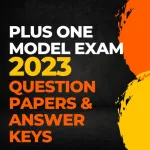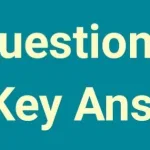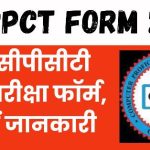Here you will find sample EPS question paper style questions with simple answers. These are designed to help you understand the type of questions asked and prepare in a stress-free way.
General Knowledge Questions and Answers
Who was the first Prime Minister of India?
Answer: Jawaharlal Nehru
Which country is called the Land of Rising Sun?
Answer: Japan
Which river is the longest in the world?
Answer: Nile River
Who wrote the national anthem of India?
Answer: Rabindranath Tagore
Which is the largest continent in the world?
Answer: Asia
Who invented the telephone?
Answer: Alexander Graham Bell
Which planet is known as the Red Planet?
Answer: Mars
What is the currency of Nepal?
Answer: Nepalese Rupee
In which year did India get independence?
Answer: 1947
Who was the first woman Prime Minister of India?
Answer: Indira Gandhi
Which is the smallest ocean in the world?
Answer: Arctic Ocean
What is the capital of South Korea?
Answer: Seoul
Which festival is known as the festival of lights?
Answer: Diwali
Which country is famous for the Great Wall?
Answer: China
Who is known as the Father of the Nation in India?
Answer: Mahatma Gandhi
What is the national animal of India?
Answer: Bengal Tiger
Which is the tallest mountain in the world?
Answer: Mount Everest
Where is the Taj Mahal located?
Answer: Agra, India
Which is the fastest land animal?
Answer: Cheetah
What is the national flower of India?
Answer: Lotus
English Questions and Answers
Choose the synonym of “Happy”.
Answer: Joyful
Choose the antonym of “Hot”.
Answer: Cold
Fill in the blank: She ____ playing outside.
Answer: is
Choose the correct spelling: Enviroment / Environment / Enviromant
Answer: Environment
Which word is a noun? Book, Run, Quickly
Answer: Book
Which sentence is correct?
a) He go to school.
b) He goes to school.
Answer: He goes to school.
Choose the plural of Child.
Answer: Children
Fill in the blank: I have lived here ____ five years.
Answer: for
Which word is opposite in meaning to “Strong”?
Answer: Weak
Choose the correct article: She bought ____ apple.
Answer: an
Identify the verb in the sentence: They are running fast.
Answer: running
Choose the correct preposition: The cat is ____ the table.
Answer: under
Make the sentence negative: She is reading a book.
Answer: She is not reading a book.
Choose the synonym of “Big”.
Answer: Large
Fill in the blank: The sun ____ in the east.
Answer: rises
Choose the correct option: There ____ many people in the park.
Answer: are
Which word is a pronoun? He, School, Chair
Answer: He
Make the plural form of Mouse.
Answer: Mice
Choose the correct sentence:
a) She don’t like tea.
b) She doesn’t like tea.
Answer: She doesn’t like tea.
Choose the antonym of “Beautiful”.
Answer: Ugly
Mathematics Questions and Answers
If you have 5 apples and eat 2, how many are left?
Answer: 3
What is the sum of 25 and 30?
Answer: 55
Subtract 45 from 100.
Answer: 55
What is half of 200?
Answer: 100
Multiply 7 by 8.
Answer: 56
Divide 90 by 10.
Answer: 9
What is the next number after 99?
Answer: 100
If a dozen eggs cost 60 rupees, what is the cost of one egg?
Answer: 5 rupees
What is the square of 12?
Answer: 144
If you buy 3 pencils at 10 rupees each, how much will you pay?
Answer: 30 rupees
What is 15 more than 85?
Answer: 100
If a book costs 120 rupees and you pay 200, how much change will you get?
Answer: 80 rupees
What is the product of 9 and 11?
Answer: 99
What is 25 percent of 200?
Answer: 50
Add 123 and 321.
Answer: 444
What is double of 45?
Answer: 90
If a person saves 500 every month, how much will they save in one year?
Answer: 6000
What is the difference between 1000 and 750?
Answer: 250
What is the result of 10 times 15?
Answer: 150
If a box contains 10 chocolates and you buy 4 boxes, how many chocolates do you have?
Answer: 40
Reasoning and Aptitude Questions and Answers
If all cats are animals and all animals are living beings, then are cats living beings?
Answer: Yes
Find the odd one out: Apple, Mango, Banana, Chair
Answer: Chair
If today is Monday, what day will it be after 3 days?
Answer: Thursday
Arrange in order: 5, 9, 2, 7, 1
Answer: 1, 2, 5, 7, 9
Which is different: Square, Circle, Triangle, Banana
Answer: Banana
If 2 pencils cost 10 rupees, how much do 10 pencils cost?
Answer: 50 rupees
What comes next in the series: 2, 4, 6, 8, ?
Answer: 10
If a train leaves at 5 pm and reaches at 9 pm, how many hours does it travel?
Answer: 4 hours
Find the missing number: 10, 20, 30, ? , 50
Answer: 40
Which word is opposite to “North”?
Answer: South
If 6 children eat 12 chocolates equally, how many does each get?
Answer: 2
Which is heavier: 1 kg cotton or 1 kg iron?
Answer: Both are equal
What comes next: A, C, E, G, ?
Answer: I
If you face east and turn right, which direction are you facing?
Answer: South
Find the odd one out: Dog, Cat, Lion, Car
Answer: Car
If a clock shows 3:15, what angle is between the hands?
Answer: Small angle
What is opposite of night?
Answer: Day
If 100 is divided into 4 equal parts, what is each part?
Answer: 25
What comes after 999?
Answer: 1000
Which is different: Pen, Pencil, Book, Potato
Answer: Potato
Best Indian Books for EPS Question Paper Preparation with Authors and Publications
-
EPS TOPIK Guidebook – By Ramesh Verma, Bright Future Publications
Covers model papers, solved examples, and Korean language basics with practice sets. -
EPS Question Bank – By Sunita Sharma, Global Education Press
Includes previous year papers, grammar exercises, and vocabulary building. -
EPS TOPIK Success Manual – By Arjun Kumar, Wisdom Publishers
Focuses on reading comprehension, sentence completion, and everyday conversation. -
Korean Language for EPS Exam – By Neha Kapoor, Sunrise Learning Publications
Contains easy-to-learn Korean words, dialogues, and translation-based questions. -
EPS Mock Test Papers – By Vikas Mehta, Spectrum Education House
Offers full-length practice tests with detailed answers and explanations. -
Mastering EPS Question Paper – By Pooja Nair, National Exam Books
Explains test format, question trends, and step-by-step strategies for success. -
EPS Grammar and Vocabulary Builder – By Manoj Singh, EduGrow Publications
Highlights essential grammar rules, sentence structure, and topic-wise vocabulary. -
EPS Previous Year Solved Papers – By Kavita Joshi, Knowledge Tree Publishers
Provides year-wise solved sets with examiner tips and shortcuts. -
EPS Study Companion – By Rajeev Malhotra, Future Skills Publications
Combines theory lessons, cultural insights, and practical exercises. -
Complete EPS Preparation Book – By Shalini Gupta, Academic Star Publishers
Covers all subjects with bilingual explanations and practice exercises. -
EPS Korean Practice Workbook – By Sanjay Kumar, Language Bridge Publishers
Focuses on writing, reading, and translation exercises with short passages. -
EPS Quick Revision Notes – By Anita Reddy, Smart Prep Publishers
Provides short notes, key phrases, and fast recap materials. -
EPS TOPIK Reading Master – By Rohit Sen, Career Path Publications
Specializes in reading comprehension passages with multiple-choice questions. -
EPS Essential Vocabulary List – By Vandana Jain, Bright Learning House
Offers topic-wise word lists with example sentences for memory building. -
EPS Mock Exam Series – By Ajay Thakur, PrepNation Publications
Presents timed mock exams with detailed scoring guidance. -
EPS TOPIK Made Simple – By Nidhi Chauhan, Easy Learn Publishers
Simplifies Korean language basics with real-life examples and practice sets. -
EPS Practice Guide – By Deepak Rana, Success Steps Publishers
Provides skill-based chapters, writing exercises, and test simulations. -
EPS Language and Practice Test Book – By Swati Sharma, Achiever Books
Balances language lessons with mock practice papers and solved exercises. -
EPS Exam Readiness Guide – By Mukesh Bhatia, EduSmart Publications
Covers strategies, time management tips, and full practice papers. -
EPS Bilingual Study Book – By Rekha Mehra, Horizon Education Press
Presents content in English and Korean with side-by-side translations.
EPS Question Paper – Expert Guide for Aspirants
The EPS question paper is designed to test candidates in reading, comprehension, vocabulary, and reasoning skills. For many aspirants, it is not only a language test but also a stepping stone toward better career opportunities. Understanding its structure and preparing with the right resources can make all the difference.
A typical EPS question paper consists of sections on reading comprehension, grammar, vocabulary, and simple problem-solving. The questions are multiple-choice in nature, requiring accuracy and speed. Unlike conventional exams, the focus is on practical language use and real-life situations rather than academic theory.
To perform well, candidates need a balanced approach that includes regular practice, vocabulary enhancement, and timed mock tests. Books play a crucial role here, offering structured learning with step-by-step guidance. Many Indian publications have created specialized EPS preparation books that are affordable and easy to follow.
General knowledge and reasoning-based sections are often included to test logical thinking. For this, books like EPS Mock Test Papers by Vikas Mehta provide practice sets with answer explanations, allowing candidates to build confidence. Similarly, EPS Previous Year Solved Papers by Kavita Joshi helps students understand recurring patterns and frequently asked questions.
Language learning is another major component of the EPS question paper. Beginners can benefit from books like Korean Language for EPS Exam by Neha Kapoor, which introduces basic grammar, vocabulary, and conversation skills. For deeper reading practice, EPS TOPIK Reading Master by Rohit Sen offers comprehension passages similar to those found in the actual test.
Candidates often struggle with vocabulary retention. In this regard, EPS Essential Vocabulary List by Vandana Jain proves useful, as it organizes words by category and provides sample sentences. On the other hand, EPS Grammar and Vocabulary Builder by Manoj Singh simplifies complex grammar rules and gives exercises to reinforce learning.
Mock test practice cannot be ignored. Books like EPS Mock Exam Series by Ajay Thakur simulate real exam conditions, allowing candidates to assess their performance. These tests are designed to help manage time effectively, a skill critical for clearing the exam.
For those who prefer concise material, EPS Quick Revision Notes by Anita Reddy offers summarized points and quick review sheets. Meanwhile, bilingual learners can make use of EPS Bilingual Study Book by Rekha Mehra, which presents explanations in both English and Korean side by side.
The EPS question paper may appear challenging, but with structured preparation and the right study materials, aspirants can approach it with confidence. These recommended books provide a mix of practice, theory, and revision tools that align with the exam format, making preparation more effective.
FAQ for eps question paper
What is an EPS question paper?
An EPS question paper is a test paper designed for the Employment Permit System (EPS) exam, which evaluates reading, comprehension, vocabulary, and reasoning skills of candidates who want to work abroad.
How many sections are there in an EPS question paper?
An EPS question paper usually has two main sections: language-based questions (reading, vocabulary, grammar) and reasoning or problem-solving questions.
What type of questions are asked in the EPS exam?
Most questions are multiple-choice, covering reading comprehension, grammar correction, vocabulary usage, sentence completion, and logical reasoning.
Is the EPS question paper very difficult?
The difficulty level is moderate. With regular practice and the right study materials, candidates can score well.
Can I prepare for the EPS question paper without coaching?
Yes. With self-study, practice books, and mock tests, many candidates prepare successfully without formal coaching.
Which books are best for EPS exam preparation?
Books like EPS TOPIK Guidebook, EPS Previous Year Solved Papers, and EPS Essential Vocabulary List are considered highly useful.
Are previous year question papers helpful for EPS preparation?
Yes, they help understand the exam pattern, commonly repeated questions, and time management.
How much time is given to solve an EPS question paper?
Generally, the exam duration is around 70 to 90 minutes, depending on the paper format.
What is the best way to improve vocabulary for the EPS exam?
Daily word practice, using bilingual word lists, and revising vocabulary-based books are the best ways.
Do I need to learn Korean for the EPS question paper?
Yes. The exam includes Korean language questions, so learning the basics of Korean grammar, vocabulary, and reading is essential.
Are mock tests important for EPS preparation?
Absolutely. Mock tests improve speed, accuracy, and familiarity with the real exam environment.
Can I find bilingual materials for EPS preparation?
Yes. Several books and practice sets are available with both English and Korean explanations.
How should I start preparing for the EPS question paper?
Begin with vocabulary and grammar basics, then practice reading passages, and finally move to timed mock tests.
Is there negative marking in the EPS exam?
No, usually there is no negative marking, but candidates should always check the updated exam guidelines.
How often is the EPS exam conducted?
The EPS exam is usually conducted once or twice a year, depending on official schedules.
Latest Posts
- Step-by-step guide to download and apply for jee mains admit card 202
- Comprehensive 2025 government holidays and recruitment details for job seekers
- JEE Mains Admit Card 2025: Your Step-by-Step Guide to Downloading the Hall Ticket
- Everything You Need to Know About 2025 Government Holidays Recruitment
- Comprehensive Guide to rrb d group recruitment 2025 – Eligibility, Vacancies, and Application
- Detailed guide to nps trust recruitment 2025 vacancies, eligibility and apply process
- Comprehensive guide to hpcl recruitment 2025 notification, vacancies, and application process
- ignou bed admission 2025 complete recruitment guide with eligibility and process
- Comprehensive Guide to Indian Army Agniveer Recruitment 2025 Notification and Jobs
- Everything You Must Know About CBSE Board Exams 2025 Changes & New Rules




